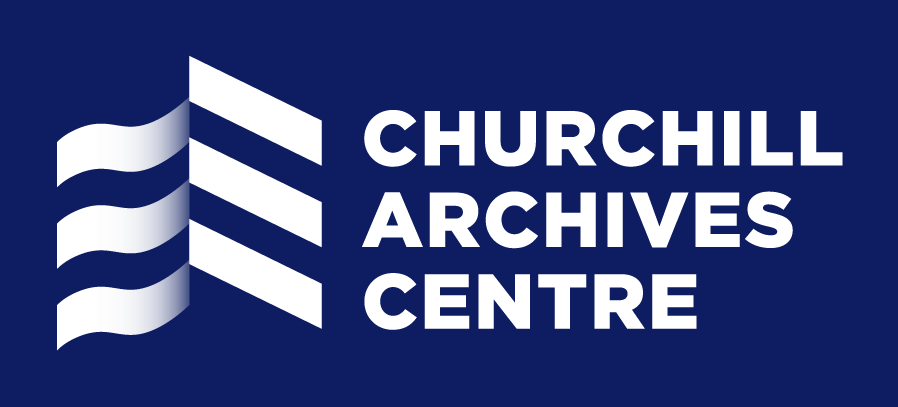India collections
The Papers of George Lloyd
George Lloyd managed to be an MP, intelligence officer and a successful diplomat. He had studied Eastern politics at Cambridge before travelling extensively in Burma, India, the Himalayas and the Middle East as a young man. He began his diplomatic career in 1905 at Constantinople, and specialised in Middle Eastern affairs before the First World War. After working in intelligence during the war, Lloyd returned to diplomatic life in 1918 as Governor of Bombay (we have his correspondence as Governor at GLLD 10 and a splendid series of photograph albums at GLLD 3/3), before serving as High Commissioner for Egypt in 1925. Resigning in 1929 he returned home once more, becoming a member of the India Group (GLLD 11) and on the outbreak of war was briefly Secretary of State for the Colonies, before his death in early 1941. As with James Grigg’s archive (see below), we also have the correspondence (and diaries) of Lloyd’s wife Blanche, at GLLD 4 and GLLD 28.

The Papers of Sir James Grigg
The archive of the civil servant and politician James Grigg is particularly strong on economic questions, as Grigg, a mathematician who began his career in the Treasury and Inland Revenue, served as Finance Member for the Government of India from 1934, where he remained until the outbreak of war in 1939. India features pretty largely within the whole collection in fact, including two series of Grigg’s reports on the finances and politics of India, 1934-39 (PJGG 3, which mainly relates to the Reserve Bank and PJGG 4, on Federation and defence). There are also a number of War Office papers on India, 1939-42, while Grigg was Under-Secretary of State for War (PJGG 8) and on the social side, two correspondence series, consisting of Lady Grigg’s letters to friends about her life in India in the 1930s (PJGG 6 and PJGG 7).
The Papers of Lieutenant-General Thomas Corbett
This is a good place to look for material on the Indian Army, particularly officer training in the 1920s and 30s, and on armoured units during the war. Corbett spent most of his career in the Indian Army, having joined an Indian cavalry regiment as a young second lieutenant, then become an instructor at the Staff College in Quetta in 1930. In 1940 he was responsible for overseeing the conversion of Indian cavalry regiments into armoured units, later organizing and training the 1st Indian armoured division and further developing the Indian armoured corps. Sections to look at in his archive are CORB 1, on the pre-war cavalry and CORB 3, on the Indian armoured division.

The Papers of Leo Amery
Leo Amery, as Secretary of State for India in Churchill’s National Coalition Government, is a key source for India policy during the war. As far as background went, Amery had much in common with his boss: they were near contemporaries at Harrow (where Amery, as a deceptively small Head Boy, was pushed into the school pool by the impudent new boy and took a speedy revenge) and each man began his career as a war correspondent in South Africa, and became strong adherents of Empire. Over India, however, they emphatically did not agree, and Amery clashed regularly with Churchill over the younger man’s obstinate resistance to reform.
A whole section of Amery’s papers is devoted to his time at the India Office (AMEL 1/6), including his papers for the Cabinet and correspondence with the Viceroy and with Churchill over such subjects as India’s future constitution, the Bengal Famine (sometimes described more innocuously as ‘the food situation’, famine not being a popular word) and post-war reconstruction. Amery’s private correspondence with the Viceroy and provincial governors was kept separate from his India Office papers, and can be found at AMEL 2/3. It is also worth looking at the archive of Leo’s son Julian, who though being from a different generation, was not so much an Empire man as his father, did work on a final volume of Leo’s memoirs covering the war years, as well as keeping up a detailed correspondence with him during the war.

The Churchill Papers
Churchill’s record on India does not show him at his best: his attitudes seemed to have been formed from when he served there as a young soldier in the 1890s and never really moved on. Though you could say that many of his contemporaries held similarly Victorian views of the Empire, others, such as Leo Amery, did not, and even for a self-proclaimed Imperial die-hard like Churchill, his loathing of Gandhi (“a seditious Middle Temple lawyer, now posing as a fakir… striding half-naked up the steps of the Vice-regal Palace”) seems extreme. You can’t ignore his archive as a source for India, though: there are over 1500 uses of the ‘India’ index keyword (used to show particularly useful documents, rather than just random mentions) within the Churchill Papers. The struggles within the Conservative Party in the 1930s over Dominion Status for India are very well-covered (with Churchill a leader of the anti-side, needless to say), while the wartime Cabinet papers on India dovetail with similar material in Amery’s papers.
For further reading, have a look at this essay by Professor Richard Toye on Churchill and Empire.

The Papers of Enoch Powell
Not quite where you might expect to find papers on India, but actually Powell’s archive has some very useful material on Conservative policy towards India in the 1940s. During the war he was stationed in India as a senior intelligence officer, 1943-45 (typically learning Urdu while he was at it and writing a report on the future of the post-war Indian army). Not long afterwards, once he had established himself within the Conservative Party Secretariat in 1946 (forerunner of the Conservative Research Department), Powell wrote numerous policy papers on India, which can be found in the early political section of his archive, POLL 3/1.
The Papers of Patrick Gordon-Walker
The Labour politician Patrick Gordon-Walker had a particular closeness with the Commonwealth; his father had been a judge in the Indian Civil Service, and Patrick’s early childhood was spent in the Punjab. One of his first political positions, two years after he had been elected as an MP, was as Under-Secretary at the new Commonwealth Relations Office, 1947-50 (he rapidly became Secretary of State from 1950-51). While there, Gordon-Walker worked on the 1949 London declaration, which asserted that the monarch was ‘the symbol of the free association’ of the member states and, as such, ‘head of the Commonwealth’, which allowed India to stay in the Commonwealth. He visited India and Pakistan in 1948, and the following year returned there as one of Prime Minister’s emissaries to other Commonwealth Prime Ministers to discuss Indian independence. Generally, the highlight of Gordon-Walker’s archive is his collection of diaries, which he kept throughout his career: this includes key diaries from his visits to India and Pakistan in 1948-49 (GNWR 1/7 and GNWR 1/8), as well as a diary of a later trip in 1957 (GNWR 1/12).
The Papers of Fenner Brockway
Most of our collections which relate to India come from the earlier part of the 20th century, but there are a few places where you may find later material. For the 1960s and 70s, the archive of the veteran left-wing campaigner Fenner Brockway is definitely worth a look. Although there aren’t whole series of files relating to India in Brockway’s papers, he took (literally) a lifelong interest in the country, as he was born in Calcutta and made his first political speech in 1910 on India’s social conditions. An ardent anti-colonialist, Brockway was an early advocate for Indian independence and was later on good personal terms with various Indian leaders, including Indira Gandhi. Sadly, the earlier part of his archive was destroyed by bombing during the war, but there is still plenty of interesting correspondence and articles about subjects including Kashmir, improving conditions for the poor, the famine of the mid-1960s, Indian immigration, the war between Bangladesh and Pakistan in the early 1970s and the State of Emergency, 1975-77.

Katharine Thomson, Archivist, October 2024

